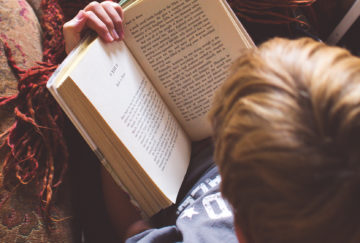Lots of industries are losing money and revenue right now as the world faces the pandemic crisis, but there’s at least one that seems to be doing better than ever: books.

Some people see reading as a thing of the past, particularly fiction. As a writer, I’ve always been a reader—you cannot become the former without practice in the latter. While the hobby of reading has never ceased to exist, and some may argue it’s been a growing trend within the last few years, the surge it has taken since the world entered COVID-19 lockdown has been exponential for the industry.
In current times, most people love the concept of non-fiction, true stories—lots of crime stuff here—and self-help or motivational texts. The world of fiction reading had almost become somewhat of a niche. Fiction remained a secret little club, and if you were willing to be a part of it, you would never leave.
Since the pandemic hit, book sales have steadily increased as people fear a life of complete isolation. Colouring books, puzzles, quiz games and true crime are amongst the top sales, yes, but people are turning to fiction now more than ever. Nielsen Book told BBC:
“The sales data suggests that the UK population has indeed been preparing for long periods of isolation…We’ve seen significant jumps in sales of puzzle books, adult colouring titles, home-learning titles for children, study guides, and we have seen a big increase in sales of paperback novels.”
BBC’s UK sales report states fiction sales went up by a third. It’s safe to assume people want escapism in these dark times. My university professor always described fictional story telling as a way for us to make sense of the human condition. In a time where we are all so confused about the state of the world and humanity as a result, and the messages are unanimously on the one topic, it’s clear we want something different. A text that is not discussing the current tragedy. A story that takes us somewhere else, forces us to question other issues, taps into another part of our brain, positions us in the realm of empathy or wonder.
People (non-readers) seem to think that fiction, meaning fake, must mean mystical or fantastical. This is why people who don’t call themselves “readers” tend to choose non-fiction, real stories, true accounts. I work in a bookshop and here’s a little secret: we make fun of these people. Only a little bit (sorry).
We do this purely because we believe, more often than not, a fiction story gives you so much more. It might present a story to you that did not happen, but that doesn’t mean it couldn’t. That it’s not possible. Fiction stories teach us multiple lessons: about people, relationships, places. They might also inform us on a specific topic or culture that we never knew anything about. They are written with purpose and they have texture, they are complex and we often leave the pages behind feeling transformed or moved in some way or another, or seeing the world from a new perspective.

Lockdown means that we must only leave our houses for essential items. If you are not going to the grocery store, a health appointment or to work, you don’t really have grounds to be travelling and leaving your home. Yet, retail remains open. Many storefronts have chosen to keep their doors open to the public in order to survive—taking the restrictions and regulations into account.
I can report first hand that book sales are indeed increasing. If you thought people were only stockpiling toilet paper and canned goods, think again. Individuals are not merely deciding to read and delve into the world of fiction, but they seem to be afraid they’ll never have access to books again. They’re buying anywhere from two to five books at a time.
At my local bookshop (where I happen to work) we have begun offering delivery and postal service for those at home (whilst abiding by the new laws) so they can grab the books they require for a wholesome and “entertaining” lock down—we can only scroll through Netflix so many times, right?
Of course, online shopping is still in full swing. Amazon, Booktopia and other online booksellers continue to send out deliveries. While this is perhaps the safest option for many (unless your local is ALSO doing personalised deliveries), there’s nothing like talking to a seller who knows books and can give you the perfect recommendations.
UK book retailer, Waterstones has seen its online book sales rise by 400%. That is huge in the reading world. People are choosing to return to more wholesome and fulfilling forms of entertainment—something that is dense, that takes time to pursue and takes you on a journey. Binge-reading is just more gratifying than binge-watching. You feel a sense of satisfaction and completion when you reach the end, instead of that grubby regret from speed watching a series. Time doesn’t feel wasted when reading.
No matter how you’re buying your reading content, all that matters is to choose to support the industry in this time. Stockpiling books is something you never have to fear, they’ll look super cute on your shelves and be good old friends to hang out with whenever you feel lonely.
Subscribe to FIB’s Weekly Alchemy Report for your weekly dose of music, fashion and pop culture news!






